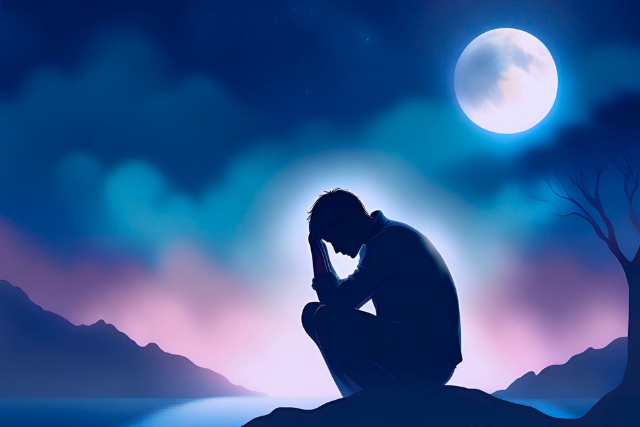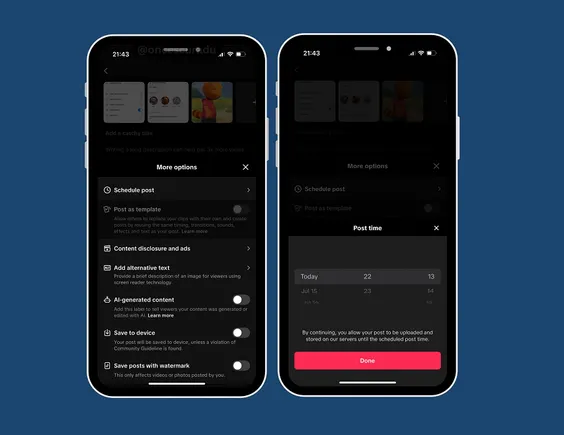8 Things to Remember When You’re at Your Lowest
“And once the storm is over, you won’t remember how you made it through, how you managed to survive. You won’t even be sure, in fact, whether the storm is really over. But one thing is certain. When you...


“And once the storm is over, you won’t remember how you made it through, how you managed to survive. You won’t even be sure, in fact, whether the storm is really over. But one thing is certain. When you come out of the storm, you won’t be the same person who walked in.” ~Haruki Marukami
Last year was both the hardest year of my life and the most transformative. My partner and I had started in vitro fertilization after years of infertility. The daily hormone injections and invasive procedures were tough, but when we saw two blue lines on the pregnancy test, we fell utterly in love with our growing baby.
Around the same time, my mother, a warm and practical person, had an unexplained manic episode that lasted for months. Unable to sleep, she became tormented by her own mind. On one occasion she went missing late at night. On another she destroyed treasured household objects. Far away from family, I was alone in helping to care for my elderly parents in crisis.
Not long after, I started to lose the baby. I bled for three weeks. A week later, I rushed to the emergency room late one night, and seriously ill, to discover I was at risk of sepsis. The experience was harder than I could have imagined. It was as though I had lost the love of my life, but with no funeral or public acknowledgment.
Around this time, I fell ill with Covid and never quite recovered. The following months were a blur of insomnia, leg pain, racing heart, ringing ears, and pressure in my head, throat, and chest. My symptoms were worse at night, when my heart raced at the slightest noise and adrenalin surged through my body. Small activities, like doing the dishes, showering, or walking up a flight of stairs, wore me out. Even socializing became exhausting.
When I was at my lowest, my sister was also in crisis. Growing up, we had been inseparable. She was fiercely affectionate, funny, and brilliant, but struggled with her mental health and was diagnosed with bipolar disorder in her twenties. Last year, she experienced a prolonged psychotic episode that manifested as extreme rage. She wrote countless emails to the family saying she was going to kill herself and it was our fault. Then she disappeared completely.
Months later, when I was starting to recover from long Covid, I got pregnant and miscarried again. This time, the doctors said the embryo had likely implanted outside the uterus and could cause a rupture if it grew too big. For weeks I went for blood tests and internal scans nearly every other day. At night I lay awake in panic.
Since that time, my long Covid has worsened. I struggle to make it through each day while holding down a job. After multiple attempts to reconcile with my sister, I think about her every day, worried for her well-being and devastated for the loss of our relationship. But when I find myself swept away by despair, insights keep arriving like small gifts on my doorstep.
After a lifetime of people-pleasing and perfectionism, my hardships taught me to advocate unapologetically for my needs and live more in the moment. My grief gave birth to a profound sense of self-compassion. I saw for the first time that my intrinsic value as a human being was not dependent on accomplishing things or pleasing others.
Losing my health taught to me to appreciate the gifts I do have: a partner who loved me through my darkest hours, caring family and friends, a stable job and home. And perhaps most importantly, I learned to treasure my own sense of possibility.
I know these hardships are not unusual. Many people have experienced chronic illness, infertility, miscarriage, or family mental illness. I hope these reflections might offer some solace to others who are also suffering.
1. Your suffering is not your fault.
Your profound loss cannot be reframed or therapized away. All you can do is listen and love yourself when the pain hits like a wave,and know that the wave will pass over. Try not to blame yourself for these terrible feelings. They are a healthy response to real tragedies. There is nothing you could have done to prevent this, and you don’t need to improve.
2. There is no shame in being unwell.
Yes, you have been hurt, but you are not broken. You are whole and complete. You don’t need to work hard at healing—it will happen in its own time. You are allowed to ask for help. This is part of the journey of recovering autonomy. You will not feel powerless forever. Remember how much you have healed already and how strong you have become.
3. It’s okay to find sources of distraction.
You are allowed to feel happy—it does not mean you have forgotten what you lost. It is okay to prioritize yourself and tend to your smallest desires and needs. You have worked so hard to take care of others, prepare for the future, and do the right thing. If there is ever a time to let go of obligation, that time is now.
4. You do not have to be brave.
You are allowed to be weak and afraid, angry and resentful, or petty and indulgent. You are allowed to be whatever it is you are at this moment. It is enough to simply make it through the day, to feed yourself or ask for time off work (please ask for time off work!) It is okay to be contradictory and complicated, and to embrace your shadow aspects.
5. There is nothing wrong with being alone.
Pretending to be okay in front of others is exhausting, but so is mustering up the courage to share your struggles. Some people may disappoint you. Most don’t know how to respond to suffering, but everyone has a gift they can offer. Some will distract you, others will hold your hand, or remind you that you are not alone. You can discover these gifts in your own time.
6. You don’t need to be rational, and you don’t need to have faith either.
But you can gently move in the direction of all sources of comfort, from a cup of hot chocolate or an afternoon nap, to the intangible solace of dreams. You can imagine spirits caring for you in your time of need or loved ones holding you in their arms. Envision a trip to a beautiful place. Remain open to mysterious and everyday sources of joy.
7. You will discover gifts that you never knew existed.
Your ability to self-advocate can turn exhaustion and overwhelm into rest and relaxation. Your capacity for gratitude can remind you of all that is well within your body and your life. Your sense of humor can reveal absurdity in even the darkest moments. By tapping into these resources, you will be better prepared for hardship in the future.
8. Every end is a new beginning.
New hopes will emerge where old ones have ended. Lean into the kind of hope that is not attached to an outcome but that fosters excited anticipation. The script of your life is unwritten and filled with potential. The unknown can be scary, but it is also where magic and mystery dwell. Remain open to new ways of being, and to the possibility for a beautiful future.
*Image generated by AI
See a typo or inaccuracy? Please contact us so we can fix it!

 Aliver
Aliver 
































